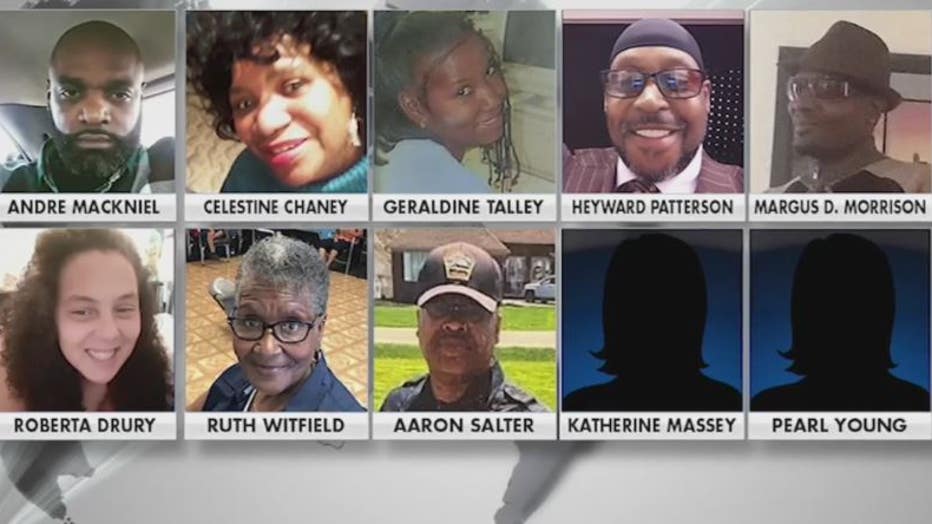Buffalo mass shooting a product of 'fifth wave of far-right extremism' expert says

Buffalo shooting is latest in far-right terrorism, expert says
A domestic terrorism expert who served under the Trump administration says the racially motivated attack in Buffalo is the latest product of far-right extremism.
DETROIT (FOX 2) - The 18-year-old man charged with killing 10 people at a Buffalo supermarket researched the local demographics and arrived a day in advance to conduct reconnaissance with the intent of killing as many Black people as possible, officials said Sunday. Domestic terrorism expert Javed Ali said this isn't anything new.
Ali is an associate professor of practice at the Gerald R. Ford School of Public Policy and has held positions within the Defense Intelligence Agency and the Department of Homeland Security before joining the Federal Bureau of Investigation. While at the FBI, he also held senior roles on joint duty assignments at the National Intelligence Council and the National Counterterrorism Center, and the National Security Council under the Trump Administration.
He said the massacre in Buffalo is a product of a fifth wave of far-right extremism and it's not new.
"Unfortunately, the Buffalo attack is yet another reminder of this threat of far-right terrorism inside the United States," he said. "But this wave of far-right terrorism, which has had lots of attacks within it, didn’t start with Donald Trump. It actually started in the late 2000s with the election of President Obama."
The racially motivated shooting mirrors the 2015 mass shooting at a predominantly Black church in Charleston, South Carolina. But Ali says what happened shares a common thread with the plot to kidnap Michigan Gov. Gretchen Whitmer and the January 6 riots at the Capitol.

"Whether it was the plot to kidnap Governor Whitmer, the events of January 6th, this recent attack in Buffalo. We’re going to continue to see more of these types of events. They’ll just look different," he said.
The Biden administration has established a national strategy for countering domestic terrorism but there's no way to charge any suspects with domestic terrorism as a federal crime.
Here's the definition: "Violent, criminal acts committed by individuals and/or groups to further ideological goals stemming from domestic influences, such as those of a political, religious, social, racial, or environmental nature."
Ali says that needs to be resolved.
"That’s another hurdle I think we have to confront. Do we actually need now a law on the books that lines up to the definition of domestic terrorism to now give federal prosecutors the ammunition to go after people," he said.
In Michigan, however, we have an anti-terror act that reads:
"(A) willful and deliberate act that is a violent felony, that the person knows or has reason to know is dangerous to human life, and is intended to coerce or intimidate a civilian population or influence a government through coercion or intimidation."
It was implemented in the plot to kidnap Whitmer as charges were filed but Ali says the internet is fanning the flames of domestic terror and suggests it may be time for Congress to hold internet service providers responsible for what is being said online.

